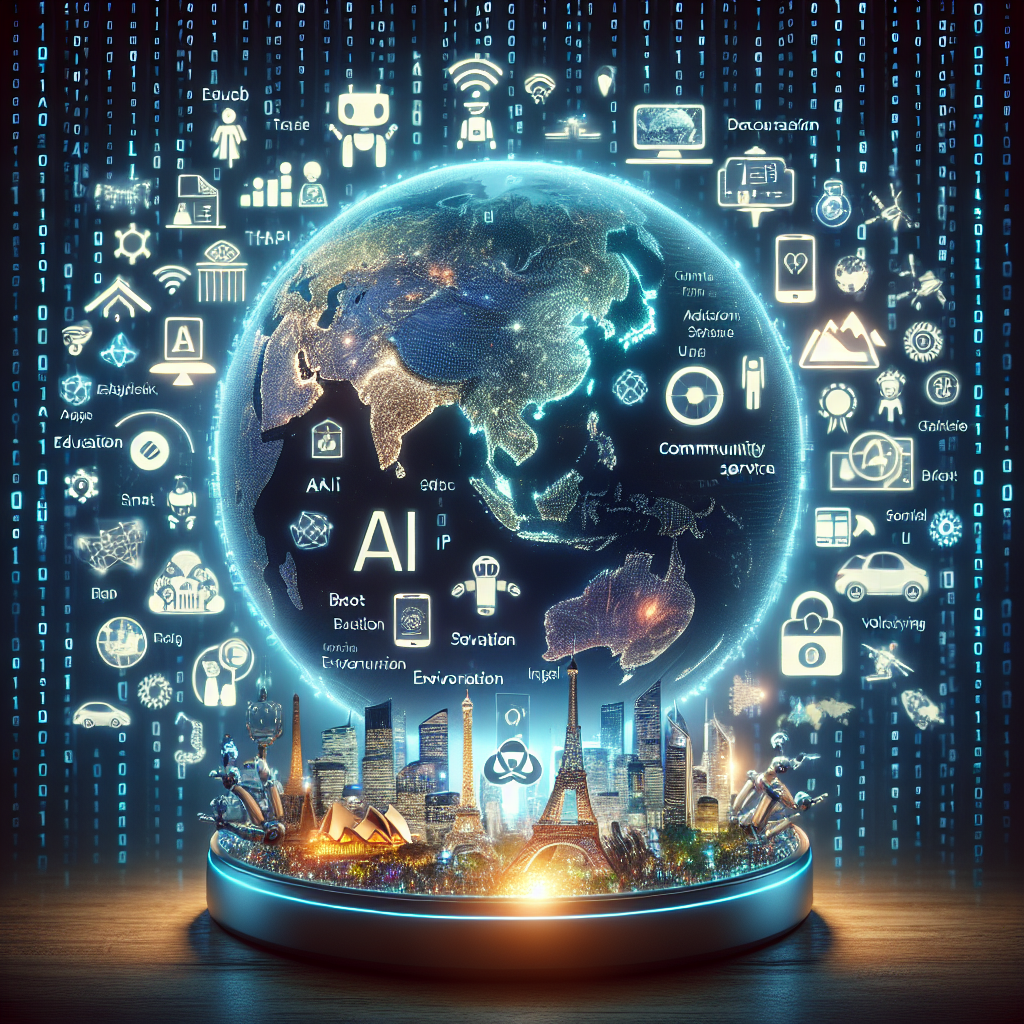Artificial Intelligence (AI) has quickly become one of the most transformative technologies of our time, with the potential to revolutionize industries, improve efficiency, and drive innovation. However, the benefits of AI have not been equally distributed, with access to the technology often limited to large corporations and tech giants. This has led to concerns about AI exacerbating inequalities and widening the gap between those who have access to its benefits and those who do not.
AI democratization is the process of making AI more accessible to a wider range of users, including small businesses, non-profit organizations, and individuals. By democratizing AI, we can ensure that the benefits of this transformative technology are more widely distributed and that it has a positive impact on society as a whole.
The Role of AI Democratization in Driving Social Impact
1. Empowering Small Businesses and Startups
One of the key ways in which AI democratization can drive social impact is by empowering small businesses and startups. AI has the potential to revolutionize the way that businesses operate, improving efficiency, enhancing decision-making, and unlocking new opportunities for growth. By making AI more accessible to small businesses, we can help level the playing field and enable them to compete more effectively with larger corporations.
For example, AI-powered tools can help small businesses automate repetitive tasks, analyze data more effectively, and personalize their marketing efforts. This can help them operate more efficiently, reach new customers, and drive growth. By democratizing AI, we can help small businesses thrive and create jobs, driving economic growth and prosperity in communities around the world.
2. Enhancing Non-Profit Organizations
Non-profit organizations play a crucial role in addressing some of the most pressing social and environmental challenges of our time. AI democratization can help these organizations leverage the power of AI to drive social impact and achieve their missions more effectively.
For example, AI can help non-profits analyze data to better understand the needs of the communities they serve, identify trends and patterns, and make more informed decisions. AI-powered tools can also help non-profits streamline their operations, improve fundraising efforts, and enhance the impact of their programs.
By democratizing AI, we can empower non-profit organizations to do more with less, reach more people, and drive positive change in the world. This can help address social issues such as poverty, inequality, and environmental degradation, creating a more just and sustainable society for all.
3. Fostering Innovation and Collaboration
AI democratization can also foster innovation and collaboration by enabling a wider range of users to experiment with and develop AI-powered solutions. By lowering the barriers to entry and making AI more accessible, we can encourage a more diverse set of voices and perspectives to participate in the development of AI technologies.
This can lead to new ideas, approaches, and applications that have the potential to address a broader range of social challenges. For example, AI-powered tools developed by individuals and small teams can help address issues such as healthcare disparities, climate change, and educational inequality.
By democratizing AI, we can tap into the creativity and ingenuity of a global community of innovators and problem-solvers, driving social impact and creating a more inclusive and equitable future for all.
4. Addressing Ethical and Social Implications
As AI becomes more prevalent in our daily lives, it is crucial to address the ethical and social implications of its use. AI democratization can help ensure that AI technologies are developed and deployed in a responsible and ethical manner, with a focus on promoting social good and minimizing harm.
By making AI more accessible to a wider range of users, we can encourage greater transparency, accountability, and inclusivity in the development and deployment of AI technologies. This can help address concerns such as bias, discrimination, and privacy violations, ensuring that AI is used in ways that benefit society as a whole.
AI democratization can also help promote diversity and inclusion in the AI field, by enabling a more diverse set of voices and perspectives to participate in the development of AI technologies. This can help counteract biases and ensure that AI technologies are designed in ways that reflect the needs and values of a broader range of users.
FAQs
Q: What are some examples of AI democratization in action?
A: One example of AI democratization in action is the development of open-source AI tools and platforms that enable a wider range of users to experiment with and develop AI-powered solutions. Another example is the use of AI-powered chatbots and virtual assistants to provide access to information and services to underserved communities.
Q: How can individuals and organizations get involved in AI democratization?
A: Individuals and organizations can get involved in AI democratization by supporting initiatives that promote access to AI technologies, advocating for policies that promote inclusivity and transparency in the development and deployment of AI, and participating in AI education and training programs.
Q: What are some of the challenges and barriers to AI democratization?
A: Some of the challenges and barriers to AI democratization include the high cost of AI technologies, the lack of technical expertise and resources in underserved communities, and concerns about data privacy and security. Addressing these challenges will require a concerted effort from governments, businesses, and civil society to ensure that AI is developed and deployed in ways that benefit society as a whole.
In conclusion, AI democratization has the potential to drive social impact by empowering small businesses, enhancing non-profit organizations, fostering innovation and collaboration, and addressing ethical and social implications. By making AI more accessible to a wider range of users, we can ensure that the benefits of this transformative technology are more widely distributed and that it has a positive impact on society as a whole. By working together to address the challenges and barriers to AI democratization, we can create a more inclusive and equitable future for all.

